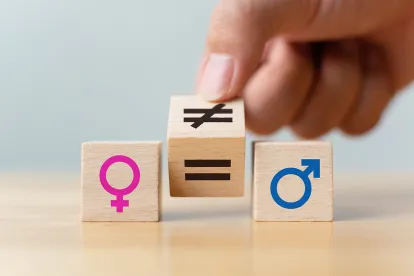Section 78 of the Equality Act 2010 (as amended by the Equality Act 2010 (Gender Pay Gap Information) Regulations 2017, which came into force on 6 April 2017) (“EA 2010“), currently governs how large private and voluntary sector employers (defined as those with 250 or more employees as at 5 April each year) report on and publish information relating to their gender pay gaps.
Currently, under section 78 of the EA 2010, for financial years beginning on or after 6 April 2017, employers must publish:
-
their overall gender pay gap figures for relevant employees (calculated using both the mean and median average hourly pay rates);
-
the proportion of men and women in each of four pay bands, based on the employer’s overall pay range;
-
information on the employer’s gender bonus gap (i.e. the difference between men and women’s mean and median bonus pay over a 12 month period); and
-
the proportion of male and female employees who received a bonus in the same 12 month period.
On 28 January 2020, the Equal Pay Bill (the “Bill“) had its first reading in the House of Lords and was published.
The Bill seeks to extend the coverage currently given under the EA 2010 to a greater percentage of the workforce and proposes various amendments to section 78 of the EA 2010. This would widen the scope of employers’ gender pay gap reporting to:
-
require reporting to include differences in the pay of employees of different ethnic origins and require certain additional information, including information on the mean and median average hourly pay earned by part-time and full-time employees and for employees of different ethnic origins;
-
lower the employee threshold for organisations that are required to report from 250 to 100 or more employees; and
-
require employers to publish a document setting out what course of action they propose to take in order to reduce any differences in pay between male and female employees and employees of different ethnic origins. Subsection 8 of the Bill also sets out elements that regulations may prescribe form part of such action plans.
If the Bill does become law, then there will be increased gender pay gap reporting obligations on employers, which may come with added financial implications as a result of employers seeking to comply with the Bill and also potentially as a result of new court and Employment Tribunal cases being brought by employees in relation to their pay. The Bill would also give the Equality and Human Rights Commission a discretionary power to enforce employees’ Right to Know, which could also have financial implications on employers.
Authored by Harry Hobson



 />i
/>i

